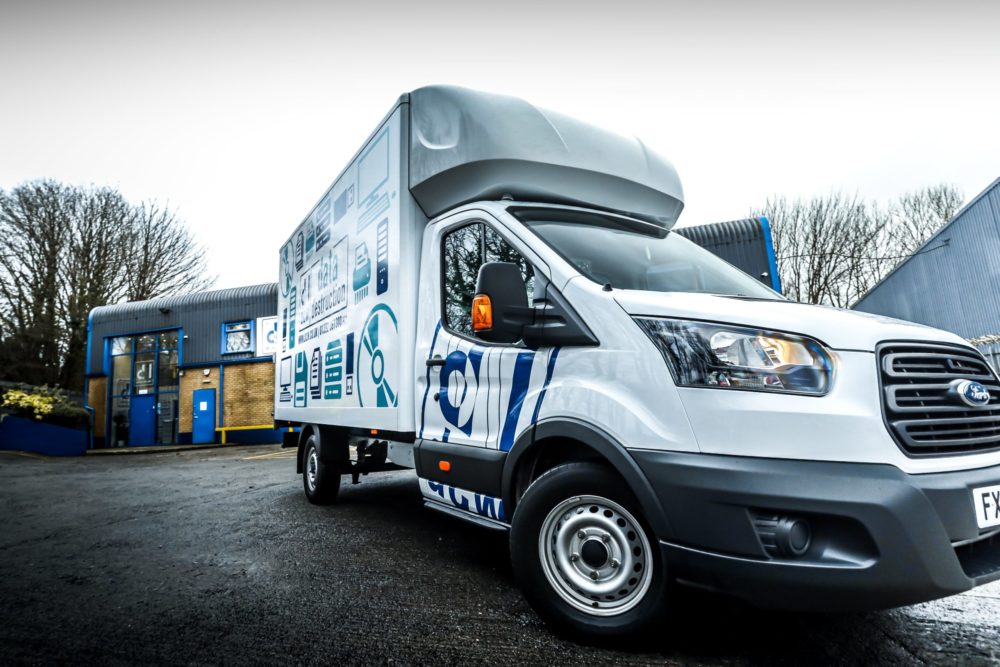Every business wants to be organised, streamlined, productive, and compliant. Yet there are so many aspects of running a business that can create mess, inefficiency, and opportunities to fall foul of the law.
One such area is paperwork. Everything from client contracts to personnel files and expense receipts are often printed and stored. But when it’s time to get rid of a year (or more!) worth of accrued waste paper, you want to get it sorted quickly and efficiently.
But there are important legal safeguards in place as to how that sensitive information can be disposed of, and for good reason too. This article will take a look at what the rules around destroying business documentation is, and the different ways your business can approach it.
What to shred and what to keep
Not all business documents should be shredded immediately. It’s essential to understand which documents need to be retained for a specific period due to legal, regulatory, or operational reasons, and which can be securely destroyed.
Documents to keep can include:
- Tax records: Typically, these should be kept for at least six years from the end of the financial year they relate to.
- Employee records: Payroll records should be retained for three years, while certain personnel records might need to be kept for up to six years after an employee leaves.
- Contracts and agreements: Keep these for as long as they are active, and for a further six years after termination in case of any legal disputes.
- Legal documents: Documents like property deeds, patents, and intellectual property agreements should be retained indefinitely.
Documents to shred can be:
- Drafts and duplicates: Once the final version of a document is completed and stored, drafts and duplicates can usually be safely shredded.
- Day-to-day correspondence: General business emails, memos, and notes can often be destroyed once they are no longer needed.
- Outdated financial records: Receipts, invoices, and other financial documents older than the retention period can be shredded.
For a comprehensive list, businesses should consult with legal or financial advisors to ensure compliance with specific industry regulations.
How to dispose of business documents
Once you’ve determined which documents can be safely destroyed, the next step is choosing how to do it securely. Businesses have several options, including in-house shredding, on-site shredding services, and off-site shredding services.
In-house shredding is a method where businesses use their own shredding equipment to dispose of documents. This option allows companies to maintain complete control over the entire process, which can be particularly reassuring for small businesses that deal with sensitive information. Additionally, it can be a cost-effective solution, especially if the volume of documents is relatively small. However, in-house shredding requires a significant investment in quality shredding equipment, and there’s a risk that documents may not be shredded to the required security standard. Moreover, it can be time-consuming for staff who must manage the shredding process in addition to their regular duties.
On-site shredding services provide a convenient and secure way to destroy documents, as the shredding is done directly at your premises. A mobile paper shredding unit comes to your location, allowing you to witness the entire shredding process. This immediate destruction of documents ensures that sensitive information is never out of your control, offering a high level of security. While this method can be more expensive than in-house shredding, particularly for large volumes of documents, the added security and peace of mind often justify the cost.
Off-site shredding services involve the collection and secure transportation of documents to a shredding facility. This service is ideal for businesses that need to dispose of large volumes of documents on a regular basis. Off-site shredding companies typically have rigorous security protocols in place to protect your documents from the moment they are collected until they are destroyed. However, because the shredding occurs off-site, businesses must rely on the service provider’s security measures during transportation and at the shredding facility. This reliance on an external party’s processes can be a concern for some businesses, especially when handling highly sensitive information.
In addition to paper shredding, businesses should also consider the secure disposal of digital documents. This involves using specialised software to permanently delete files and ensuring that any old hardware, such as hard drives, is destroyed in compliance with data protection regulations. Proper digital document disposal is just as crucial as shredding paper documents, as it prevents the potential recovery of sensitive data.
Rules and regulations around document storage and shredding
Compliance with regulations like GDPR (General Data Protection Regulation) is essential when handling business documents. Under GDPR, any personal data that is no longer needed must be securely destroyed to prevent unauthorised access.
Key compliance regulations include:
- GDPR: Businesses must ensure that personal data is kept secure and only for as long as necessary. Once the data is no longer needed, it must be disposed of in a way that prevents unauthorised access, typically through shredding.
- Data Protection Act 2018: This act complements GDPR and sets out additional rules for processing personal data in the UK.
- ISO 27001: For businesses managing sensitive information, compliance with the ISO 27001 standard can help ensure that data security processes are robust and effective.
Businesses should also adhere to industry-specific regulations. For instance, financial institutions and healthcare providers often have stricter document retention and destruction requirements.
Get in touch with DCW for secure document shredding today
To ensure your business complies with all relevant regulations while managing document destruction efficiently, consider using DCW’s mobile paper shredding service. Operating across Devon and beyond, DCW offers a secure, convenient solution for shredding confidential waste on-site, giving you peace of mind that your sensitive information is disposed of securely.
Contact our friendly team today for a quote and to learn more about how they can help your business stay compliant and organised.
